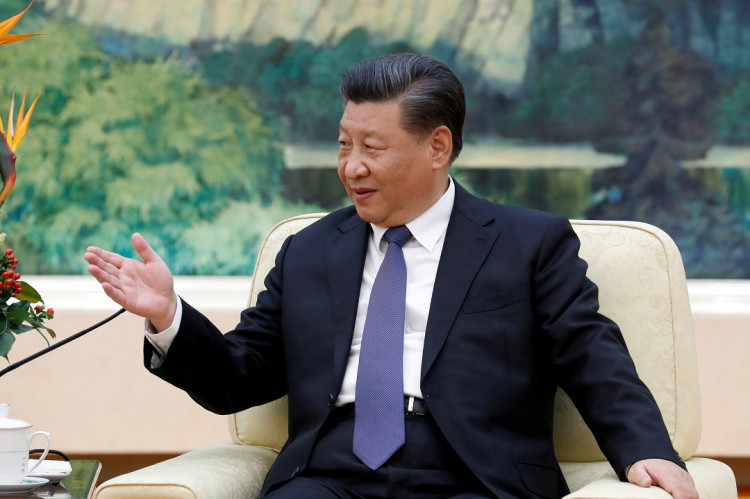Chinese President Xi Jinping met with U.S. Secretary of State Antony Blinken in Beijing on Friday, marking the conclusion of Blinken's three-day visit to China aimed at stabilizing the strained relationship between the two superpowers. During the meeting, Xi warned the United States against treating China as an enemy and urged Washington to be "true to their words" and stop "saying one thing and doing another."
"Our two countries ... should be true to their words," Xi said, according to Chinese state broadcaster CCTV. "We should help each other flourish, not harm each other." The Chinese leader, who has been repeatedly called a "dictator" by U.S. President Joe Biden, acknowledged that while there has been communication and some positive progress in certain fields, many questions remain unresolved, and there is room for further improvement in the relationship.
Blinken, who also met with Chinese top diplomat Wang Yi earlier in the day, stressed that the United States was seeking to "responsibly manage competition" with China. "We discussed areas of difference, in addition to areas of shared interest - like counternarcotics - where we can build on progress to deliver benefits for both our peoples," Blinken said on X, the social media platform formerly known as Twitter.
The Secretary of State's visit comes amid growing tensions between the two nations, with China expressing frustration over recent U.S. efforts to strengthen alliances with Japan and the Philippines in the South and East China Seas, provide military support to Taiwan, and impose technological restrictions on Chinese access to advanced semiconductors.
During his meeting with Wang Yi, Blinken emphasized the importance of face-to-face diplomacy in moving the relationship forward and avoiding misunderstandings and miscalculations. Wang, in turn, noted that while the U.S.-China relationship was beginning to stabilize, "negative factors" were on the rise, with China's "legitimate development rights" being "unreasonably suppressed" and its core interests facing challenges.
"Should China and the United States keep to the right direction of moving forward with stability or return to a downward spiral?" Wang asked, framing it as a "major question" before the two countries.
Blinken later described his meeting with Wang, which lasted more than three hours, as "extensive and constructive." According to a State Department readout, the two men discussed next steps on a range of commitments made by Xi and Biden at their summit in California in November, including cooperation on counternarcotics, military-to-military communication, talks on artificial intelligence risks and safety, and facilitating people-to-people exchanges. Blinken announced that the U.S. and China would hold their first talks on artificial intelligence in the coming weeks.
A primary goal of Blinken's visit was to warn China about its support for Russia's war against Ukraine, which began weeks after Moscow and Beijing declared a "no limits" partnership in 2022. Though China does not appear to be supplying Russia with lethal assistance, Blinken said that it was providing machine tools, microelectronics, and other dual-use items that make it the "top supplier" of Russia's defense industrial base.
"Russia would struggle to sustain its assault on Ukraine without China's support," he said.
Other issues on the agenda included Chinese economic and trade practices the U.S. views as unfair, Chinese aggression in the South China Sea, stability in the Taiwan Strait, North Korea's nuclear and missile programs, and the Israel-Hamas war.
Despite the challenges, Blinken expressed the U.S.'s desire for China's economy to grow but emphasized that "the way China grows matters." He called for a "healthy economic relationship where American workers and firms are treated equally and fairly" and raised concerns about China's unfair trade practices and the risk of Chinese industrial overcapacity in key industries flooding U.S. and other markets with Chinese products.





